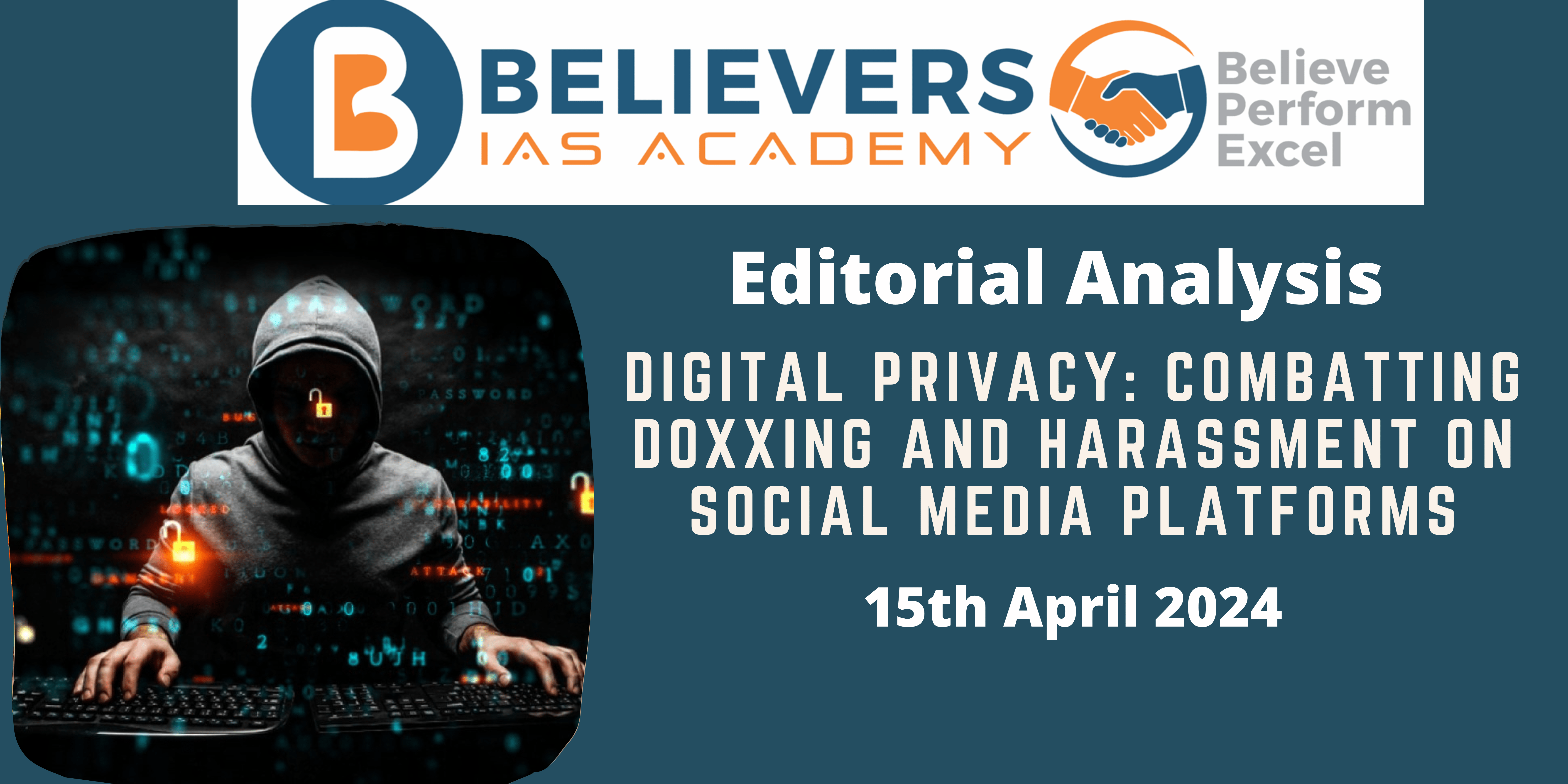Digital Privacy: Combatting Doxxing and Harassment on Social Media Platforms
Context:
The rise of social media platforms has brought both connectivity and risks to users, with one concerning trend being the malicious act of doxxing.
- Doxxing involves the unauthorized exposure of private or sensitive information about individuals on the internet, often leading to harassment, threats, and emotional distress. Recently, a case of doxxing surfaced in Mumbai, underscoring the urgent need to address this issue.
Relevance:
GS-02 (Government policies and interventions)
Dimensions of the Article:
- What is Doxxing?
- Effects
- How is it actually done?
- Government initiatives
- Suggested measures
What is Doxxing?
- It is a form of online harassment involving the publication of personal information about an individual without their consent.
- This data may encompass particulars like their complete name, residential address, contact number, workplace, and other delicate details.
- Doxxing is frequently perpetrated to reveal, menace, or coerce individuals, often resulting in grave repercussions like physical violence, stalking, or job termination.
- Such data is typically acquired through illicit means such as hacking or theft.
- Doxxing poses a significant threat to individuals’ digital, physical, and emotional security. The unauthorized disclosure of personal details, such as addresses, phone numbers, and employment information, can expose victims to harassment, stalking, and even physical harm.
- Moreover, doxxing often leads to the dissemination of false information, damaging reputations and causing distress to victims and their families.
Effects:
- Victims of doxxing are forced to navigate a complex web of challenges, including securing their digital accounts, protecting their physical safety, and addressing the emotional toll of harassment and threats.
- The repercussions of doxxing extend beyond the individual, affecting their families, colleagues, and communities. Furthermore, doxxing disproportionately targets marginalized groups, exacerbating existing inequalities and vulnerabilities.
How is it actually done?
- Doxxing typically involves the collection and dissemination of personal information obtained through illegal means, such as hacking or data breaches.
- Perpetrators may share this information on social media platforms, online forums, or dark web channels, amplifying the potential for harassment and abuse.
- The intent behind doxxing is often malicious, aimed at causing harm or inciting others to engage in harassment.
Government initiatives:
- In response to the growing threat of doxxing, governments and regulatory bodies have introduced measures to address online harassment and protect users’ privacy.
- For example, platforms like X (formerly Twitter) and Meta have implemented policies to prohibit the sharing of private information without consent.
- Additionally, legislative frameworks such as India’s IT Rules provide avenues for victims to report cybercrimes and seek legal recourse against perpetrators. However, enforcement of these regulations remains a challenge, requiring collaboration between law enforcement agencies, social media companies, and civil society organizations.
Suggested measures:
- Enhanced platform policies: Social media companies should strengthen their policies and enforcement mechanisms to prevent the unauthorized sharing of private information. This includes proactive monitoring of content, swift response to reports of doxxing, and transparency in moderation practices.
- Legal reforms: Governments should enact comprehensive legislation to address online harassment and protect individuals’ privacy rights. This may include provisions for swift takedown of doxxing content, stringent penalties for perpetrators, and provisions for victim support and compensation.
- Public awareness campaigns: Educating users about the risks of doxxing and providing guidance on digital security best practices is essential. Public awareness campaigns, workshops, and online resources can empower individuals to protect themselves against online threats and respond effectively if targeted.
- Collaboration and coordination: Collaboration between governments, law enforcement agencies, social media companies, and civil society organizations is crucial to address the complex challenges posed by doxxing. Information sharing, joint investigations, and coordinated response efforts can enhance the effectiveness of interventions and support holistic solutions.




